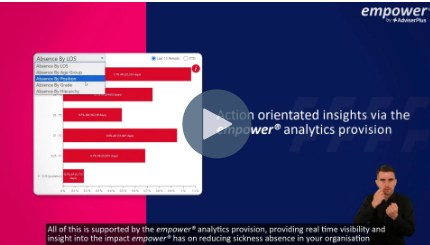Navigating the new era of HR
The UK is entering a transformative phase for workplace regulations, with Labour’s new Employment Rights Bill, rising NI contributions, and an increased minimum wage putting increased financial and legal burdens on businesses. These changes create a perfect storm for HR leaders, presenting challenges – but also opportunities to evolve ways of working.
To weather the storm, organisations must embrace HR transformation and implement innovative cost-saving strategies that go beyond traditional approaches.
In this blog, we’ll explore the challenges businesses face and the solutions they can adopt to adapt to these changes, mitigate risks, and drive efficiency and growth.
The perfect storm for HR
Several major changes are converging to create a more demanding environment for HR teams across the UK:
Rising business costs: The proposed Employment Rights Bill could cost businesses up to £5 billion a year, according to recent reports. Add to that the higher National Insurance contributions and the increasing minimum wage, and payroll budgets are under immense strain.
Stronger worker rights: The new legislation is set to provide employees with more rights from day one, including new statutory sick pay rights and removing the two-year qualifying period for unfair dismissal claims. While these changes are seen as a long-awaited boost for workers, they also bring higher compliance costs and more rigid regulations for businesses.
Talent retention: Employee engagement and retention have always been challenges, but with rising costs and new regulations, it’s even more important to retain top talent.
Impact on the economy: An economic assessment prepared for MPs warns that these added costs could push businesses to scale back on hiring, and lead to redundancies, which we’ve seen in the media already. This could slow down economic growth – something the government has identified as a key priority for the future.
Rise in probation activity: As part of our support for clients, we’ve assessed the potential impact of day one rights on probation tasks and our analysis identified a potential rise of up to 230% in activity on probation matters, potentially requiring 13% more employee relations (ER) advisory resources. This means one additional advisor for every eight currently employed. Watch this webinar ‘Optimising probation periods‘ for more insights.
(BBC News source, 21st October 2024)
These overlapping pressures make it clear that HR needs to be at the heart of strategies focused on improving productivity, reducing costs, and protecting employee experiences.
Digital transformation in HR is crucial
To navigate the growing challenges HR teams across the UK are facing, embracing digital transformation in HR is essential.
This will drive efficiency, reduce costs, and enhance employee experiences, maximising limited resources. Here’s how HR transformation can tackle these challenges:
1. Empowering line managers
With rising costs and more stringent worker protections, line managers must be equipped to manage day-to-day employee relations matters proactively.
By empowering managers with the right digital technology and training in communication, performance management, and conflict resolution, HR can lighten its workload and reduce the risk of issues escalating into costly disputes.
When managers are skilled in handling employee matters early on, they not only create a positive work environment but also improve employee satisfaction – two key aspects of talent retention.
2. Reducing employment tribunal claims
With increasing focus on worker rights and stronger protections, businesses need robust policies and procedures. By ensuring policies are fair, up-to-date, and consistently applied, and by managing ER cases effectively, organisations can reduce the risk of costly employment tribunal claims. Here’s how:
- Prompt and fair issue resolution ensures a positive employee experience and prevents unnecessary disputes;
- Clear ER case management processes guide managers through consistent, compliant steps, facilitating early intervention and achieving better resolutions;
- Well-maintained audit trails document actions and can be output at a click of a button, reducing the admin burden for tribunals;
- A proactive management approach reduces the likelihood of costly tribunal claims and creates a culture of fairness and transparency.
Implementing effective employee relations processes enhances compliance, minimises legal risks, and creates a positive work environment. This reduces both the direct costs of tribunal claims and the indirect costs associated with low employee engagement and increased turnover.
3. Managing sickness absence
| Managing sickness absence is a significant challenge for businesses, especially with rising pressure on people managers and HR teams. | Watch the full video to learn more |
A proactive approach is key. This involves implementing customised return-to-work plans and early intervention measures that can significantly reduce the impact of absenteeism. By addressing issues at the earliest stage, businesses can better manage sickness absence and minimise the associated costs of lost productivity.
This approach leads to a more productive and resilient workforce while reducing the financial strain of absenteeism. Contact us today to explore how you could reduce your sickness absence costs by up to 10%.
4. Leveraging employee relations technology
In a time of rising costs and administrative pressure, employee relations case management technology can be a game-changer. By enabling managers to self-serve routine tasks like ER case management, HR teams can reduce administrative burdens and focus on more strategic initiatives, such as employee engagement and well-being.
The data and analytics that digitalising processes provides is invaluable. The insights into employee case trends enables business leaders to make informed decisions and drive greater efficiency.
This approach not only enhances operational effectiveness but also supports a more engaged and productive workforce, ultimately aligning HR strategies with business goals.
empower®, an award-winning employee relations case management system not only supports cost-saving measures but also enhances the employee experience.